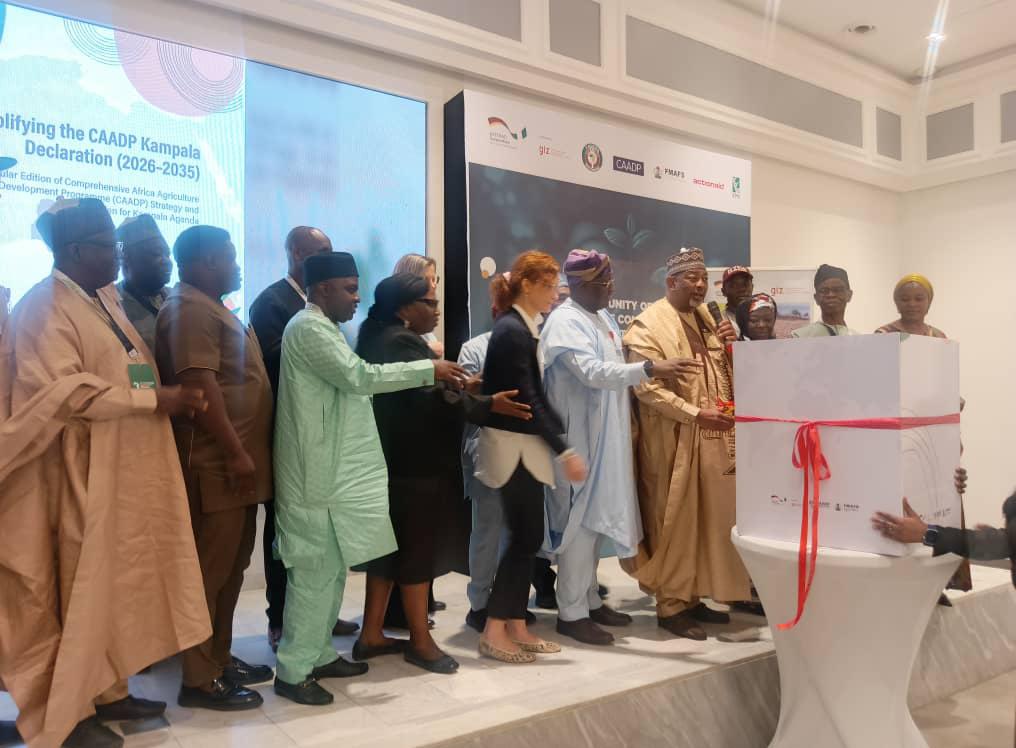The Federal Government has announced a $538.05 million investment in Special Agro-Industrial Processing Zones (SAPZs) across Nigeria as part of efforts to strengthen food security and transform the country’s agricultural sector.
The Minister of Agriculture and Food Security, Abubakar Kyari, disclosed this on Monday during the Community of Practice Summit on the Comprehensive Africa Agriculture Development Programme (CAADP), held in Abuja.
According to Kyari, the government has already launched SAPZ projects in Kaduna, Cross River, and Ogun States, with plans to expand to additional states. The initiative, which leverages private sector participation, is expected to attract a further $1 billion in investment by 2027.
“In addition to other interventions, the Federal Government has provided 2,000 tractors and related implements to boost agricultural production,” Kyari said. “We have also launched the SAPZs in three states, with others coming on board. The zones are projected to stimulate a total of $1 billion in investments by 2027.”
The minister stated that the SAPZs are designed to promote value addition, create jobs, improve supply chains, and enhance food security. He noted that the initiative aligns with Nigeria’s commitment to the CAADP and the Malabo Declaration.
READ ALSO: Shettima flags off special agro-industrial processing zone in Kaduna
Kyari also highlighted the creation of an Agricultural Sector Working Group comprising research institutions, development partners, private sector representatives, and civil society stakeholders. The group is tasked with monitoring progress, identifying gaps, and promoting accountability in the implementation of agricultural programmes.
He further revealed that Nigeria had made progress in the African Union’s biennial review of agricultural development and that recent reforms had received regional recognition.
Speaking on the Nigeria Postharvest Systems Transformation Programme (NiPHaST), Kyari said the initiative aims to reduce annual post-harvest losses estimated at ₦3.5 trillion, improve value chains, and strengthen national food sovereignty.
“At the African Food Systems Summit in Dakar, I hosted a deal room with investors on the NiPHaST programme, which aims to reduce inefficiencies, strengthen value chains, and improve food security,” he said.
The minister added that the reforms are expected to contribute to improved livelihoods, economic growth, and a more resilient and equitable food system.
The Head of Development Cooperation at the German Development Cooperation, Dr Karin Jansen, said Germany, through the BMZ and GIZ, is supporting agricultural policy reforms in nine partner countries across Africa and Asia.
Jansen noted that the German-supported AgSys project aims to link food security, climate action, and biodiversity, while promoting inclusive transformation through engagement with civil society, women, and youth.
She added that the African Union’s CAADP framework had been updated through the 2025 Kampala Declaration, with a 10-year Strategic Action Plan (2026–2035) to guide future implementation.
Chairperson of the Coalition of NGOs in Agriculture and Sustainable Development, Rosemary Effiong, expressed support for the SAPZ initiative and other reforms but called for increased budgetary allocation to agriculture, improved infrastructure, and gender-responsive policies.
Effiong urged the Federal Government to fully implement the CAADP commitment of allocating at least 10 per cent of national, state, and local budgets to agriculture. She also called for stronger investment in rural roads, irrigation, post-harvest storage, and agricultural extension services.
She further advocated for the inclusion of non-state actors in monitoring and evaluation processes, and the domestication of the CAADP Kampala Declaration across all 36 states and the Federal Capital Territory.



